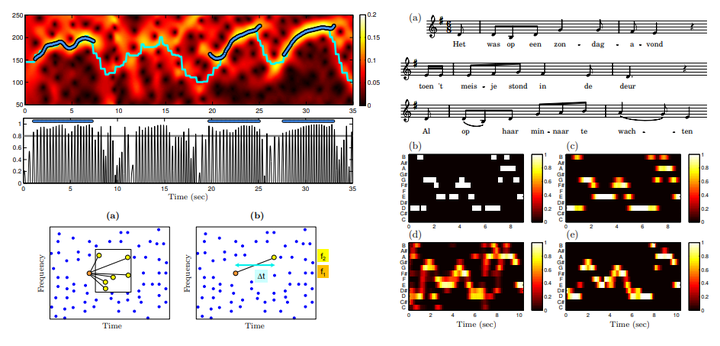Signal processing methods for beat tracking, music segmentation, and audio retrieval

Abstract
The goal of music information retrieval (MIR) is to develop novel strategies and techniques for organizing, exploring, accessing, and understanding music data in an efficient manner. The conversion of waveform-based audio data into semantically meaningful feature representations by the use of digital signal processing techniques is at the center of MIR and constitutes a difficult field of research because of the complexity and diversity of music signals. In this thesis, we introduce novel signal processing methods that allow for extracting musically meaningful information from audio signals. As main strategy, we exploit musical knowledge about the signals' properties to derive feature representations that show a significant degree of robustness against musical variations but still exhibit a high musical expressiveness. We apply this general strategy to three different areas of MIR: Firstly, we introduce novel techniques for extracting tempo and beat information, where we particularly consider challenging music with changing tempo and soft note onsets. Secondly, we present novel algorithms for the automated segmentation and analysis of folk song field recordings, where one has to cope with significant fluctuations in intonation and tempo as well as recording artifacts. Thirdly, we explore a cross-version approach to content-based music retrieval based on the query-by-example paradigm. In all three areas, we focus on application scenarios where strong musical variations make the extraction of musically meaningful information a challenging task.